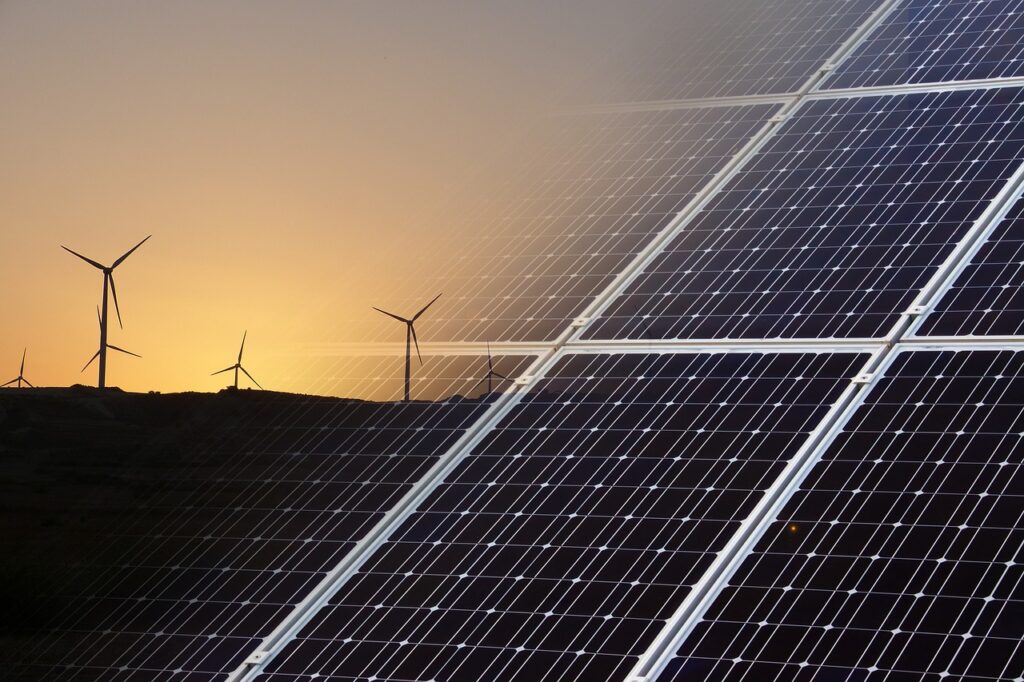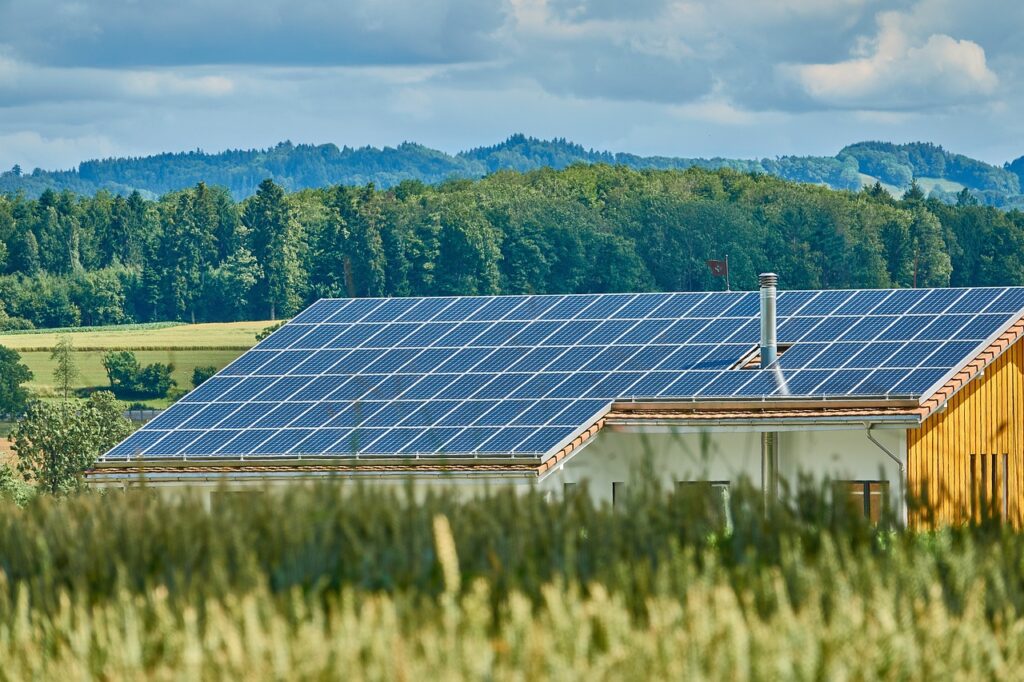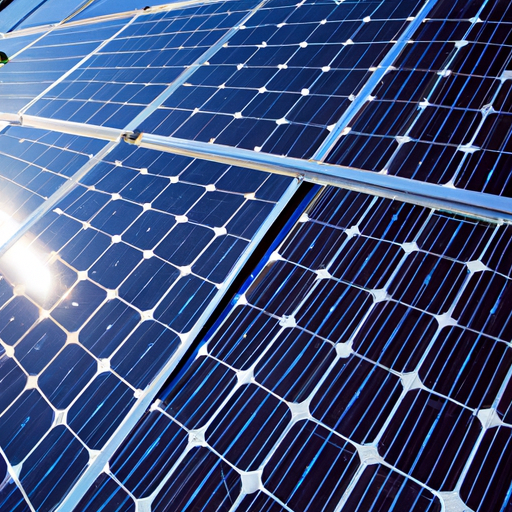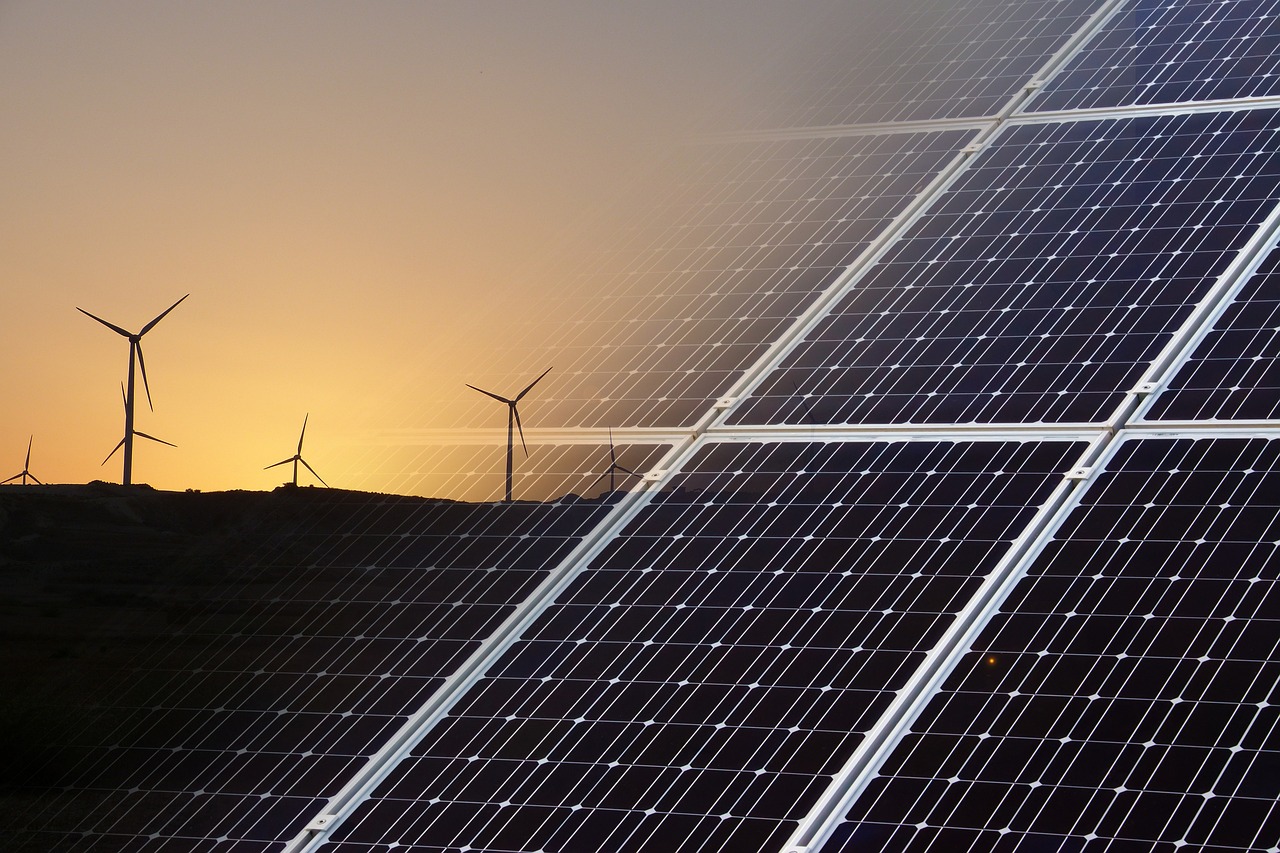Why Are Solar Panels Considered A Green Energy Source: Introduction
Why Are Solar Panels Considered A Green Energy Source? This is a question that has been gaining significant attention as conversations around climate change and renewable energy become increasingly urgent. In this introduction, we set the stage to explore multiple facets that contribute to the “green” status of solar panels.
First, we will look at how solar panels tap into the sun, a renewable and abundant source of energy that doesn’t deplete over time. Unlike finite resources like coal or oil, solar energy offers a virtually inexhaustible supply, positioning it as a sustainable alternative for electricity generation.
Second, we’ll discuss the environmental integrity of solar panels, specifically their ability to produce electricity without emitting harmful greenhouse gases. This is a stark contrast to fossil fuel-based energy sources, which contribute to climate change and air pollution, posing risks to both human health and ecosystems.
Third, we’ll examine the economic dimensions, including the long-term financial benefits and governmental incentives that make solar panels an increasingly affordable option for households and businesses alike.
Finally, the versatility and scalability of solar panels make them a solution for a variety of settings—from remote, off-grid locations to large urban centers, contributing to their reputation as a green energy source.
If you’ve ever wondered, “Why Are Solar Panels Considered A Green Energy Source?” then this article is for you. Read on for a more comprehensive understanding of why solar panels have become a critical tool in the fight against climate change.
Check Out Our Top Eco Friendly Product Picks On Amazon Here
Renewable Energy
Definition of Renewable Energy
Renewable energy refers to energy sources that can be naturally replenished and are not depleted upon use. Unlike fossil fuels, which are finite and contribute to air pollution and global warming, renewable energy is clean, sustainable, and abundant. One of the most widely recognized forms of renewable energy is solar energy.
Solar Energy as a Renewable Source
Solar energy is among the leading sources of renewable energy. It harnesses the power of the sun, converting sunlight into electricity through the use of solar panels. This sustainable energy source offers an array of benefits, from reducing greenhouse gas emissions to promoting energy independence.
Why Are Solar Panels Considered A Green Energy Source: Solar Panel Technology
How Solar Panels Work
Solar panels contain photovoltaic cells that convert sunlight into direct current (DC) electricity. These cells are made of semiconductors, typically silicon, which absorb the photons from sunlight. When the photons strike the cells, they knock electrons loose from their atoms, generating an electric current.
Photovoltaic Cells
Photovoltaic (PV) cells, or solar cells, are the building blocks of solar panels. These cells are made of layers of silicon, a semiconductor material. When sunlight hits the cells, it excites the electrons, creating an electric current. This direct current is then converted into alternating current (AC) through an inverter, making it suitable for standard household use.
Types of Solar Panels
There are three main types of solar panels: monocrystalline, polycrystalline, and thin-film. Monocrystalline panels are made from a single crystal structure, offering higher efficiency but at a higher cost. Polycrystalline panels are made from multiple silicon crystals, providing slightly lower efficiency but a more affordable price. Thin-film panels, on the other hand, use thin layers of photovoltaic material, making them lightweight and versatile, although less efficient.
Efficiency and Cost
The efficiency of solar panels refers to the amount of sunlight they can convert into usable electricity. Advances in solar technology have significantly improved the efficiency of solar panels, with some reaching conversion rates of over 20%. This increased efficiency allows for greater electricity production using fewer panels.
While the upfront cost of installing solar panels can be significant, it is important to consider the long-term financial benefits. Over time, solar panels can save homeowners money on their electricity bills, reduce reliance on the grid, and offer a return on investment. Furthermore, the cost of solar panels has been steadily decreasing, making this renewable energy option more accessible to a wider range of individuals and businesses.
Environmental Benefits
Reduced Greenhouse Gas Emissions
One of the most significant environmental benefits of solar energy is the reduction of greenhouse gas emissions. Solar panels produce electricity without emitting harmful pollutants into the atmosphere. By choosing solar power over traditional energy sources, such as coal or natural gas, individuals and businesses can contribute to mitigating climate change and reducing their carbon footprint.
No Air Pollution
Unlike fossil fuels, solar energy production does not release harmful pollutants into the air. This has a direct positive impact on air quality, reducing the risk of respiratory problems caused by pollution. By transitioning to solar energy, we can create cleaner and healthier environments for ourselves and future generations.
Water Conservation
Traditional methods of electricity generation, such as fossil fuel power plants, often require vast amounts of water for cooling purposes. In contrast, solar panels do not require water for their operation. By utilizing solar energy, we can conserve this precious resource and alleviate the strain on water supplies, particularly in arid regions or during periods of drought.
Minimization of Land Disturbance
Solar panels can be installed on various types of land, from rooftops to farmland and even desert areas. By utilizing existing spaces, we can minimize land disturbance and preserve natural habitats. Additionally, solar farms can often coexist with other land uses, allowing for agricultural activities or grazing to take place in the same area, promoting sustainable land use practices.
Why Are Solar Panels Considered A Green Energy Source: Energy Independence
Reduced Reliance on Fossil Fuels
Solar energy offers an alternative to traditional fossil fuels, reducing our dependence on finite resources. By generating electricity from the sun, individuals and communities can become less reliant on energy sources that contribute to environmental degradation and geopolitical instability. Solar power can create a more sustainable and localized energy system.
Local Energy Production
Solar panels enable local energy production, bringing power generation closer to the point of consumption. This decentralization of the energy grid reduces transmission losses and the need for long-distance energy transportation. It also enhances grid resiliency, as local solar installations can continue to generate electricity even during power outages.
Grid Independence
With solar energy, individuals and businesses can achieve grid independence to some extent. By installing a solar panel system with battery storage, excess electricity generated during the day can be stored and used during periods of low sunlight or at night. This energy independence provides greater control over energy supply and offers a reliable backup option during emergencies.

Sustainable Resource
Abundance of Solar Energy
The sun is an abundant source of energy, providing an unlimited supply of sunlight day after day. By harnessing solar energy, we tap into an almost inexhaustible resource. The total amount of solar energy reaching the Earth every hour exceeds the world’s annual energy consumption, emphasizing the immense potential of this renewable resource.
Longevity of Solar Panels
Solar panels have a long lifespan, typically lasting between 25 to 30 years. With proper maintenance and care, some panels have even been known to continue producing electricity for over 40 years. This longevity makes solar panels a wise investment, ensuring a reliable and sustainable source of energy for decades to come.
Low Maintenance Requirements
Solar panels have minimal maintenance requirements. They are designed to withstand various weather conditions, including rain and snow, and require occasional cleaning to remove dust or debris. Additionally, most solar panel systems come with warranties, ensuring any potential issues are addressed promptly and at no additional cost to the owner.
Recyclability
At the end of their lifespan, solar panels can be recycled. Photovoltaic cells contain valuable materials such as silicon, aluminum, and glass, which can be recovered and reused in the production of new panels. Proper recycling practices ensure that the environmental impact of solar panel disposal is minimized, further contributing to the sustainability of this renewable energy source.
Why Are Solar Panels Considered A Green Energy Source: Economic Benefits
Job Creation
The transition to solar energy has the potential to create significant job opportunities. The installation, maintenance, and manufacturing sectors of the solar industry require skilled workers. By investing in solar energy, countries can stimulate local economies, create jobs, and support sustainable economic growth.
Cost Savings
Solar energy can lead to substantial cost savings for homeowners and businesses. As the price of solar panels continues to decline, the return on investment becomes more attractive. By generating their own electricity, individuals can reduce their reliance on utility companies and potentially eliminate or greatly reduce their monthly electricity bills. Over time, these savings can offset the initial investment in solar panel installation.
Revenue Generation
In addition to cost savings, solar energy can also generate revenue. Through net metering or feed-in tariffs, excess electricity produced by solar panels can be sold back to the grid, providing an additional source of income for system owners. Moreover, in some regions, solar energy projects can qualify for renewable energy credits or incentives, further boosting the financial benefits of going solar.

Positive Effect on Health
Reduction in Airborne Pollutants
By switching to solar energy, we reduce the release of pollutants such as sulfur dioxide, nitrogen oxides, and particulate matter into the air. These pollutants contribute to respiratory and cardiovascular diseases, as well as other adverse health effects. By choosing solar power, we can improve air quality and protect the well-being of communities.
Improved Air Quality
The reduction of air pollutants that accompany solar energy production has a direct impact on air quality. Cleaner air means a lower risk of respiratory illnesses, such as asthma, bronchitis, and lung cancer. Improved air quality also benefits vulnerable populations, including children, the elderly, and individuals with pre-existing health conditions.
Public Health Benefits
Adopting solar energy not only leads to cleaner air but also provides broader public health benefits. By mitigating climate change and reducing the reliance on fossil fuels, we can combat the environmental factors linked to various health issues. Solar energy’s positive impact on public health is a compelling reason to consider its widespread adoption.
Global Importance of Solar Energy
Curbing Climate Change
Solar energy plays a crucial role in combating climate change. The burning of fossil fuels releases greenhouse gases, which trap heat in the Earth’s atmosphere, causing global warming. By shifting to solar power, we can significantly reduce carbon emissions and slow down the rate of climate change. The widespread adoption of solar energy is essential in tackling this global challenge.
Mitigating Energy Poverty
In many parts of the world, access to electricity is limited or nonexistent, creating energy poverty. Solar energy can address this issue by providing off-grid or decentralized energy solutions. Solar panels can be installed in remote areas, bringing electricity to communities that would otherwise lack access. This not only improves living conditions but also supports economic development and educational opportunities.
International Cooperation
Solar energy has the potential to foster international cooperation in the pursuit of sustainable development. Countries can collaborate on research, share best practices, and engage in technology transfer to accelerate the global adoption of solar energy. By working together, nations can make significant strides towards a clean energy future and build a more sustainable and resilient world.

Government Support and Incentives
Financial Incentives
Many governments offer financial incentives to encourage the installation of solar panels. These incentives can include tax credits, rebates, grants, and low-interest loans. By reducing the upfront cost of solar panel installation, governments make solar energy more affordable and accessible to a wider range of individuals and businesses.
Subsidies and Grants
In addition to financial incentives, governments may provide subsidies and grants to support the solar industry. These financial aids can help offset the costs of research and development, infrastructure development, and workforce training. By offering such support, governments demonstrate their commitment to renewable energy and stimulate the growth of the solar sector.
Policy Initiatives
Government policies play a crucial role in promoting the adoption of solar energy. Policies can include renewable portfolio standards, which mandate a certain percentage of electricity to come from renewable sources. Additionally, feed-in tariffs, net metering, and power purchase agreements can incentivize the generation of solar power and ensure a favorable business environment for solar energy producers.
Future Prospects and Research
Advancements in Solar Technology
The future of solar energy looks promising, with continued advancements in solar technology. Researchers are exploring new materials, such as perovskite solar cells, that offer even greater efficiency and lower manufacturing costs. Additionally, innovations in solar thermal technology and concentrated solar power have the potential to further expand the applications of solar energy.
Integration with Energy Storage
Energy storage is a key challenge in renewable energy deployment. Solar energy can be integrated with energy storage systems, such as batteries, to store excess electricity for later use. This enhances the reliability and resilience of solar power, enabling its continuous supply even during periods of low sunlight or high demand.
Research and Development
Ongoing research and development efforts are crucial for advancing solar energy technologies. Scientists and engineers are continuously working on improving the efficiency, durability, and affordability of solar panels. With increased funding and collaboration, we can expect further breakthroughs that will drive the widespread adoption of solar energy in the future.
Why Are Solar Panels Considered A Green Energy Source: In A Nutshell
In conclusion, the question, “Why Are Solar Panels Considered A Green Energy Source?” finds its answer in the multitude of benefits that solar panels bring to the table.
Firstly, let’s revisit the environmental advantages. Solar panels capture the sun’s abundant and renewable energy, effectively reducing greenhouse gas emissions that contribute to climate change. Unlike fossil fuels, the use of solar panels minimizes air pollution, conserves precious water resources, and preserves land by reducing the need for destructive mining and drilling practices.
Secondly, on the economic front, solar energy not only fosters energy independence but also creates job opportunities. By investing in this sector, individuals, as well as businesses, can realize significant cost savings over time. Government incentives further sweeten the deal, making solar power a financially attractive option.
Thirdly, the public health benefits cannot be overstated. Reduced air pollution means fewer health issues like asthma or other respiratory problems. Clean energy production has a direct positive impact on the health of communities globally.
Lastly, solar power is globally significant in addressing energy poverty, especially in remote areas where traditional energy infrastructures are hard to establish. With ongoing research and technological advancements in the field of solar energy, its future prospects are promising.
By embracing solar power, we’re taking steps toward a more sustainable world, one that will benefit not just us but also future generations. So, if you’ve ever pondered, “Why Are Solar Panels Considered A Green Energy Source?” the evidence is clear: their environmental, economic, and social impacts make them an integral part of a greener future.




